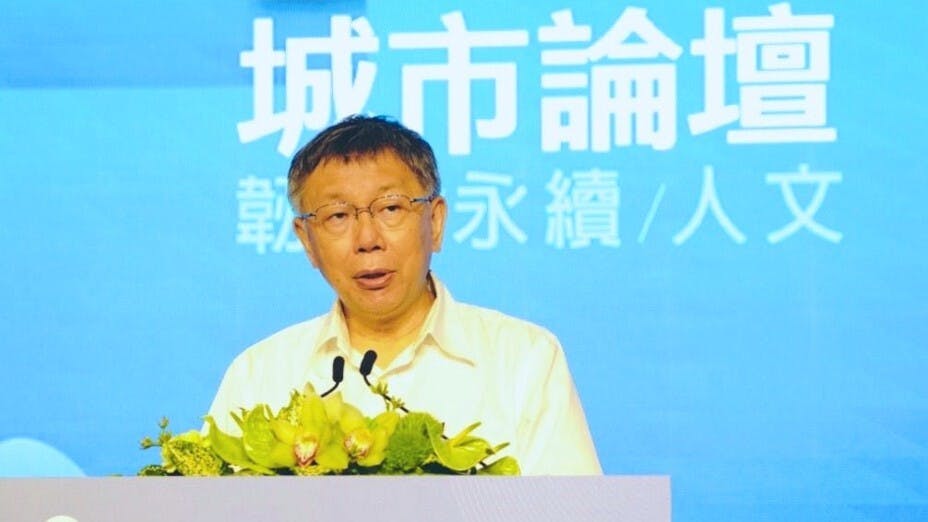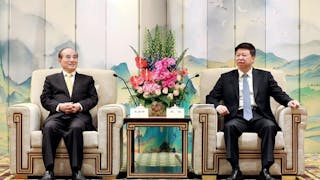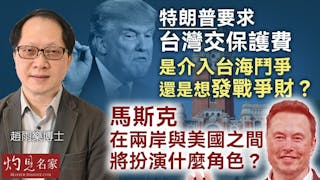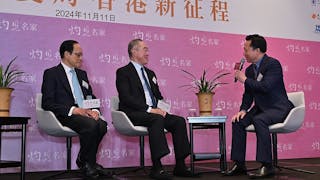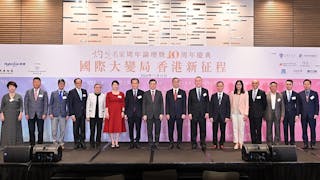過去一周,海峽兩岸舉行了兩個論壇,包括2022上海台灣城市論壇和兩岸青年峰會,雙方通過視像對話,對兩岸關係具有重要的政治意義。
「兩岸一家親」的重要交流平台
上海台北城市論壇自2010年4月首次舉辦後,7月19日舉行了第13屆論壇,這是上海與台北兩市領導人就影響兩岸經濟、社會、貿易、交通、養年服務、體育、智慧城市發展、可持續發展和創新技術等全方位議題的年度交流會。
2021年12月,滬台兩市簽署了野生動物保育、民樂人才交流與合作和信息、經驗、成果定期分享合作備忘錄。今年論壇以「韌性、永續、人文」為主題,兩市簽署了循環經濟、圍棋運動、智慧交通經驗交流合作備忘錄。上海市常務副市長吳清與台北市副市長彭振聲,分別就如何控制碳排放交換了意見。氣候變化問題成為雙方共同關心的問題,雙方在交流經驗時感到舒暢和富有成果。
上海市長龔正、台北市長柯文哲分別致開幕詞。龔正說,上海將堅持「兩岸一家親」的理念,為台企來滬投資興業創造良好環境,為台胞在上海學習、就業、創業、生活提供更多便利。 龔正還說,雙城論壇是上海台北攜手合作的重要平台,也是兩市交流互鑒的橋樑紐帶。
柯文哲表示,台北上海城市論壇體現了台滬兩市在加強文化和貿易往來方面的堅持。他表示,雙方應努力實現雙贏,從而為兩岸人民謀求和平與福祉。
柯文哲公開說出台灣的不滿
有趣的是,柯文哲的一些言論並沒有被大陸傳媒和親北京的香港傳媒報道。柯文哲表示,這幾年台海局勢緊張,兩岸對立加劇。比如台灣欲參與WHA(世界衛生大會),大陸軍機頻繁出現在台灣西北部空域,台灣的鳳梨(菠蘿)、蓮霧、芒果、石斑魚輸出大陸受阻等等。他說,這些都成了爭議的焦點,「傷害兩岸民眾之間的感情」。台灣傳媒注意到,今年柯文哲的立場較去年強硬,一方面是因為新冠疫情持續,阻礙了他訪問大陸,另一方面,是因為許多問題需要比以往更公開地討論。
最重要的是,柯文哲並沒有用「兩岸一家親」的說法,這是表明台灣和大陸和雙方關係日益緊張的姿態。他提出了雙方改善關係的「5個互相」:互相認識、互相了解、互相尊重、互相合作、互相諒解。論壇只持續了一個半小時,據台灣傳媒報道,這是歷史上最短的雙城論壇。
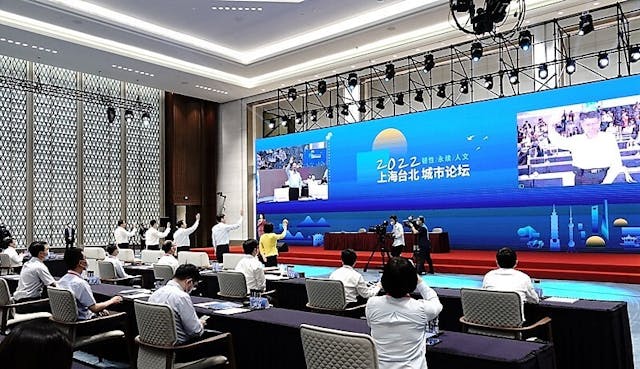
國民黨與民眾黨贊成續辦論壇
台北上海城市論壇在柯文哲快將卸任台北市長時召開。目前,3名來自不同黨派的候選人,包括國民黨的蔣萬安、民進黨的陳時中、民眾黨的黃珊珊,正準備角逐今年年底的台北市長選舉,他們被記者問及對台北上海城市論壇的意見時,蔣萬安說,應該在相互尊重和善意的情況下繼續辦下去;民進黨的陳時中說,雙城論壇「要有實質的意義才會辦,目前來看不是說不能辦,但是目前不宜辦」;黃珊珊則認為,台北上海城市論壇提供了雙方溝通的渠道,「不宜中止」。
很明顯,陳時中的態度模棱兩可,而蔣萬安和黃珊珊的回答更加肯定和積極。根據台灣最新的民意調查顯示,陳時中的支持率似乎略高於蔣萬安,陳時中倘當選,民進黨籍市長會否影響台灣上海城市論壇繼續舉行,還有待觀察。
劉結一籲兩岸青年 共擔民族復興大任
上海台北城市論壇舉行之後兩天的7月21日,兩岸青年峰會亦透過網絡視訊舉行。兩岸共有240名青年代表參加大會,國台辦主任劉結一致開幕詞。劉結一表示,大會是響應習近平主席號召的具體行動,習近平主席提出,大陸和台灣的青年應該有共同的願望,在新時代應該有責任。劉結一希望兩岸青年以實現中華民族偉大復興為己任,以完成國家統一大業為職志,共圓中國夢。
北京市副市長陳吉寧表示,北京歷史文化底蘊深厚。北京市將秉承習近平主席「兩岸一家親」的理念,認真落實中央惠台利民政策措施。這意味着北京將實施有利於台灣民眾在北京投資和居住的措施。
陳吉寧和龔政在講話中都用了「兩岸一家親」的說法,表明大陸官員在10月黨代表大會前的幾個月,就已經對兩岸關係持積極態度,做好與台方互動的必要工作,意味着大陸對台政策可能會進一步推進。
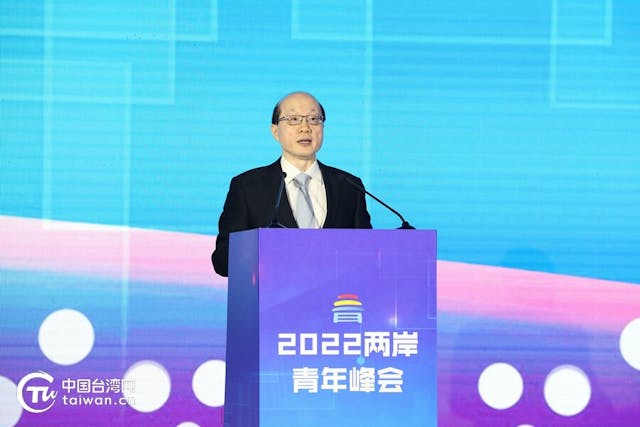
北京積極推進對話 外媒一味危言聳聽
因此,上海台北城市論壇和兩岸青年峰會的召開,具有重大的政治意義。
首先,正如習近平主席7月1日在香港所說的,在香港一國兩制剛剛進入「由治及興」的階段後,北京當局的對台政策將集中進行人際的交往。
其次,在疫情持續的時候,上海台北城市台論壇仍然是人際交往的重要平台,這是兩岸對話的重要渠道。儘管今年論壇氣氛淡化,主要是因為疫情持續,部分原因是因為柯文哲直言批評了大陸對台政策,但論壇為台方提供了一個表達不滿的平台,也讓大陸方面更仔細地聆聽了台灣民眾的關切。
第三,如果論壇和峰會代表了大陸方面為鞏固與台灣方面關係作出的真誠努力,仍需要做更多的工作。儘管大陸方面沒有報道柯文哲的批評言論,但大陸當局必須深思。雖然國民黨副主席連勝文在兩岸青年峰會上發表講話,表示希望兩岸青年創造雙贏局面,但在Omicron變種病毒有望在2023年消退後,必須要有具體行動。換言之,如果大陸的統戰工作重點放在台灣青年身上,要贏得他們的人心,還有更多工作要做。
第四,雖然外媒特別是美國傳媒將大陸與台灣關係形容為「迫在眉睫」的軍事對抗,事實上,大陸方面一直採取積極態度,以更加明顯和自信的方式與台灣方面進行互動。
綜上所述,上海台灣城市論壇和兩岸青年峰會的舉辦,是大陸方面向台北和台灣方面邁出的積極步伐。雙城論壇和青年峰會會具有政治意義,意味着大陸開始了對台重新接觸的政策,為台方提供了一個表達觀點的平台。大陸對台灣民眾特別是對青年的統戰工作已經恢復,外媒不僅誇言大陸即將對台進行「軍事入侵」,而且對北京政府持負面態度。客觀上,他們不知道雨過終會天晴。如果大陸推動中華族偉大復興的信息能夠以更廣泛、更深入的方式傳遍台灣社會,那麼兩岸關係的未來,就不會像那些悲觀主義者想像般暗淡。
From Shanghai-Taipei Forum to Cross-Strait Youth Convention: Political Significance
In the past week, two mainland-Taiwan forums, including the Shanghai-Taipei Forum and the Cross-Strait Youth Convention, were held through the online video with significant political implications for the relations between the People’s Republic of China (PRC) and Taiwan.
The Shanghai-Taipei Forum was held on July 19 for the thirteenth time after the first forum was first organized in April 2010. It is an annual exchange between the leaders of Shanghai and Taipei cities on a whole range issues affecting the economy, society, trade, transport, elderly affairs, sports, smart city development, sustainability and innovation technology. In December 2021, both cities signed their memorandum of cooperation on animal protection, the exchange of cultural and musical talents, and the development of information technology. This year, the Forum used “perseverance, sustainability and people-culture” as the main themes and both cities signed a cooperative memorandum of understanding on circulation economy, smart cities and human exchange through chess games. The deputy mayors of both Shanghai and Taipei, Wu Qing and Pong Cheng-sheng respectively, exchanged their views on how to control carbon emissions. Climate change issues became a common concern in which both sides felt comfortable and productive to exchange their experiences.
Shanghai mayor Gong Zheng and Taipei mayor Ko Wen-je delivered their opening speeches. Gong said both sides would persist in the idea of “two straits as a family,” creating favorable conditions for the Taiwan entrepreneurs to invest in Shanghai and start up their business there. Shanghai would provide convenience to the Taiwan people to learn from Shanghai, work, and reside there. Gong added that the Forum was important as it gave confidence to the Taiwan investors in doing business in Shanghai.
Ko Wen-jie remarked that the Forum represented the persistence of two cities in enhancing cultural and trade interactions. Both sides should strive for a win-win situation, according to Ko, thereby seeking to achieve peace and welfare for people on the two straits.
Interestingly, some of Ko’s remarks were not reported in the mainland media and the pro-Beijing Hong Kong press. Ko Wen-jie said that in the recent years, tensions and confrontations across the two Straits had worsened, such as Taiwan’s attempt at joining the World Health Organization’s Assembly, the frequent appearance of mainland military planes in the airspace northwest of Taiwan, and the difficulties of Taiwan’s fruit products to go into the mainland market. All these incidents, Ko said, “hurt the feelings of people across the two straits.” The Taiwan media observed that Ko’s position this year is stronger than his stance last year, partly because the persistence of Omicron hindered his visit to the mainland, and partly because many issues needed to be discussed more openly than ever before.
Most importantly, Ko Wen-jie did not use the term “two straits as a family” – a gesture showing the increasingly strained relationships between the mainland and Taiwan sides. He advocated five principles for both sides to improve their relationships: mutual recognition, mutual understanding, mutual respect, mutual cooperation and mutual forgiveness.” The Forum lasted for only one and half hour – the shortest forum in its history according to the Taiwan media.
The Forum was held at a time when Ko Wen-jie would soon step down as the Taipei mayor. At present, three candidates from different parties are preparing to compete in the Taipei mayoral elections by the end of this year, including Chiang Wan-an from the Kuomintang (KMT), Chen Shih-chung from the Democratic Progressive Party (DPP), and Huang Shan-shan from the People First Party (PFP). When asked by reporters on their stance on the Shanghai-Taipei Forum, Chiang said that it should continue based on mutual respect and good will. Chen of the DPP said that the Forum should not be held under “the current circumstances,” and that it would be held if circumstances change. Huang believed that because the Forum provides a channel for dialogue from both sides, it should be held.
Clearly, Chen adopted an ambiguous attitude, while Chiang and Huang answered in a far more affirmative and positive manner. It remains to be seen whether a DPP mayor, if Chen wins as his popularity seems to have a slight edge over Chiang according to recent opinion polls, would affect the continuation of the Shanghai-Taipei Forum.
On July 21, two days after the Shanghai-Taipei Forum, the Cross-Strait Youth Convention was held online. Both sides had 240 youth representatives to participate in the convention, where the PRC State Council’s Taiwan Affairs Office director, Liu Jieyi, delivered an opening speech. Liu said that the convention represented a concrete action to respond to the appeals made by President Xi Jinping, who said that youths on the mainland and Taiwan should have common wishes and that they should have responsibilities in the new era. Liu hoped that the youths from both sides should aim at achieving the Chinese renaissance, completing the task of national reunification as an important task and accomplishing the Chinese dream together.
Beijing’s deputy mayor Chen Jining said that Beijing has rich historical and cultural heritage, and that the city is going to fully implement President Xi’s idea of “two straits as a family.” This meant that Beijing would implement the measures favorable to the Taiwan people in investing and residing there.
Both Chen Jining and Gong Zheng used the term “two straits as a family” in their speeches, showing that mainland officials have been gearing up the need to interact with the Taiwan side and adopting a positive attitude toward mainland-Taiwan relations months before the October Party Congress, where the mainland’s Taiwan policy would likely be advanced further.
The Shanghai-Taipei Forum and the Cross-Strait Youth Convention were held with tremendous political significance.
First, after the “one country, two systems” in Hong Kong has just entered the stage of turning “governance to emergence,” as President Xi said in Hong Kong on July 1, the PRC authorities have targeted Taiwan in their policy of engagement with intensive human interactions.
Second, the Shanghai-Taipei Forum remains a crucial point of human interactions at a time when Omicron persists. It is an important channel of dialogue from both sides. Even though the atmosphere of the Forum this year has been diluted mainly because of the persistence of Omicron and partly because of Ko Wen-jie’s frankness of criticizing the mainland’s policy toward Taiwan, the Forum provides a platform for the Taiwan side to air their grievances and for the mainland side to listen more carefully to the concerns from the Taiwan people.
Third, if the Forum and the Convention represent sincere efforts from the mainland side to cement its relations with the Taiwan side, more work will have to be done. Ko Wen-jie’s critical remarks, albeit unreported in the mainland, must be pondered by the mainland authorities. Although KMT’s deputy president Sean Lien Sheng-wen gave a speech at the Convention to express his hope that youths from both sides would create a win-win situation, concrete actions would have to be taken after Omicron fades away hopefully in 2023. In other words, if the mainland’s united front work focuses on the Taiwan youth, more work remains to be done to win their hearts and minds.
Fourth, although the foreign media, especially the US media, have portrayed mainland-Taiwan relations as so tense that military confrontations would be “imminent,” the reality is that the mainland side has been adopting a positive approach to interacting with the Taiwan side in a far more prominent and assertive way.
In conclusion, the holding of the Shanghai-Taipei Forum and the Cross-Strait Youth Convention represented positive steps taken from the mainland side to reach out to the Taipei and Taiwan counterpart. The forum and convention were politically significant, meaning that the mainland has started its reengagement policy toward Taiwan, that they provided a platform for the Taiwan side to air their views, that the mainland’s united front work on the Taiwan people especially the youth has resumed, and that the foreign media have not only exaggerated the imminent “military invasion” by the mainland on Taiwan but also remained negative on the PRC without knowing objectively that every cloud has a silver lining. If the mainland’s message of creating a Chinese renaissance can get across the Taiwan society in a broader and much deeper way, the future relations between the mainland and Taiwan are not so bleak as pessimists assume.



